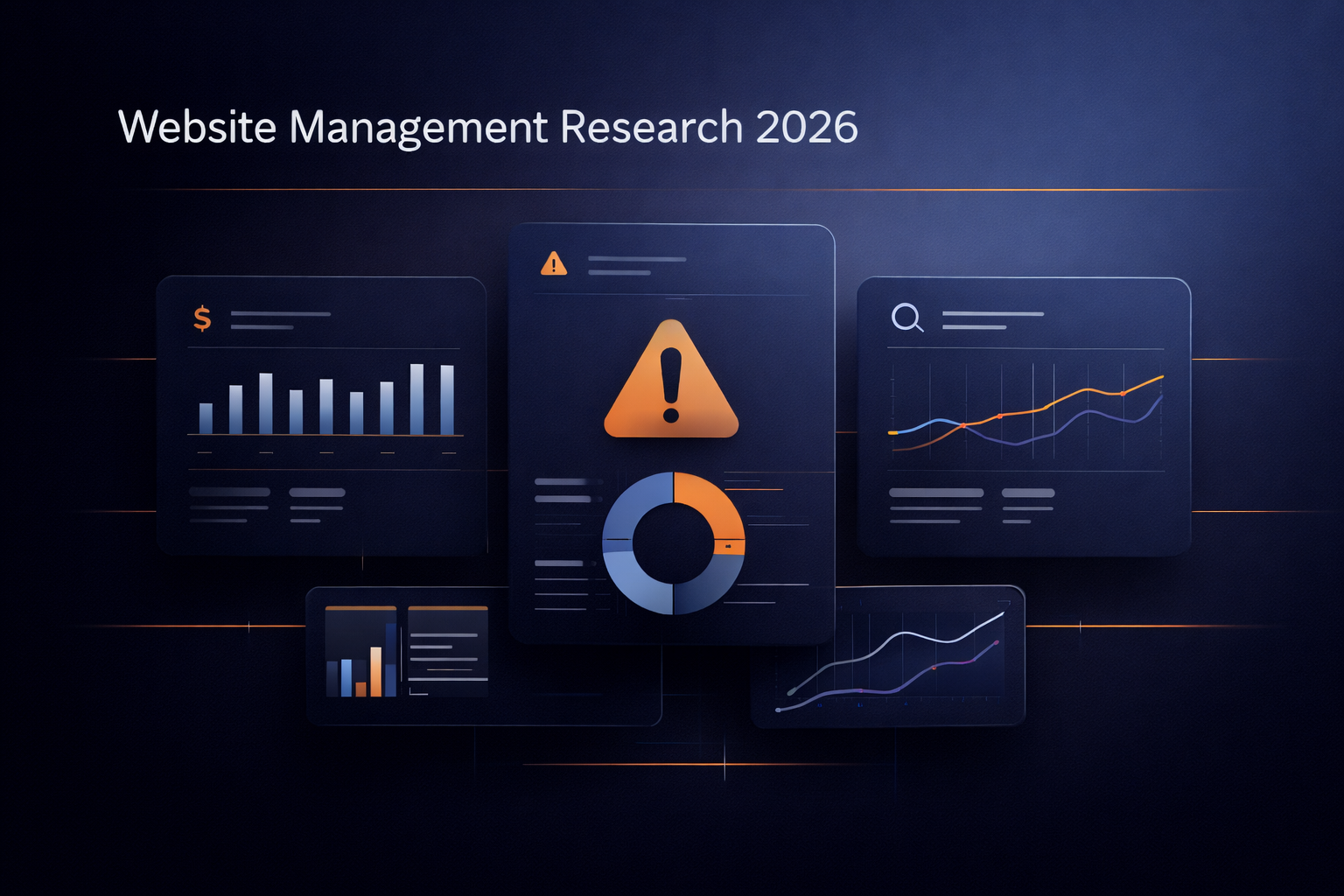AI is basically the world’s most overachieving intern — it reads everything, remembers too much, and answers like it’s never heard of procrastination.
The problem?
That intern doesn’t work just for you. It’s also working for your competitors… and if you’re not feeding it the right cues, you’re giving away business on autopilot.
Enter The GEO Keyword Method — my not-so-secret weapon for getting AI to recommend you first when people ask for location-specific services or products.
Because here’s the thing: every day, people are asking AI “Who’s the best in [city] for [service]?” — and AI has to answer. If you’re not positioning yourself to be the name it spits out… guess whose name it’s giving instead?
This blog is your unfair advantage.
By the time you finish reading, you’ll know exactly how to:
- Find the GEO prompts people are already asking AI that should be recommending you
- Build a keyword footprint so obvious the AI basically has to mention you
- Scale this into a content strategy that locks in local dominance
Let’s get you into the AI recommendation pipeline — and keep you there.
What Is the GEO Keyword Method — and Why Should You Care?
Generative Engine Optimization (GEO) is the new kid on the block, but don’t let the fancy name scare you. It’s basically the art and science of making your content impossible for AI tools like ChatGPT, Google Bard, or Microsoft Copilot to ignore — especially when people ask for recommendations tied to location or specific services.
Unlike traditional SEO, which mostly targets Google’s search engine results pages (SERPs), GEO targets the AI models themselves — the ones that summarize, cite, and answer user questions directly.
Here’s the kicker: AI isn’t just reading your keywords. It’s looking for natural, human-like queries that show you understand exactly what users want — plus content structured clearly enough for AI to pull quotes or references without breaking a sweat.
When you nail the GEO keyword method, you become the go-to answer for those AI assistants, which means:
- Increased brand visibility in voice assistants and AI chatbots
- Higher chances of appearing in AI-generated snippets and summaries
- More direct referral traffic from users trusting AI recommendations
In short? You’re not just ranking on Google anymore. You’re being recommended by AI. And that’s where the real goldmine is.
How to Find the GEO Keywords That Trigger AI to Recommend You
This is where most marketing agencies and businesses get it wrong: they chase high-volume, broad keywords instead of the real questions people ask AI.
Step 1: Listen to Your Customers’ Actual Questions
People don’t search like robots; they talk like humans. That means your keyword research has to evolve.
Use tools like:
- AnswerThePublic (https://answerthepublic.com/) — great for uncovering natural language questions people are asking around your industry and location.
- AlsoAsked (https://alsoasked.com/) — lets you explore related questions in a neat visual map.
- Google’s “People Also Ask” boxes — check the questions Google suggests in your niche for insights on real user intent.
Look for local or geographic variations, too. For example, if you run a digital marketing agency in Austin, people aren’t just typing “digital marketing agency.” They want to know:
- “Best digital marketing agency in Austin TX for startups”
- “Affordable SEO services near me in Austin”
- “Who does the best PPC campaigns in Austin?”
Step 2: Use Full-Question Keywords to Match AI’s Natural Language Understanding
Instead of stuffing your content with short-tail keywords like “SEO services,” write out full questions and answers your customers would actually ask AI.
For example:
- “What are the top-rated digital marketing agencies in Austin?”
- “How much do SEO services cost for small businesses in Austin?”
These long-tail, conversational queries give AI the clear signals it needs to recommend you in response to real-world prompts.
Step 3: Build Semantic Clusters Around GEO Keywords
AI loves semantic context — meaning, it wants to see related topics and concepts clustered together.
So if your seed GEO keyword is “Austin digital marketing agency,” expand your content to cover:
- SEO strategies for small businesses in Austin
- PPC advertising trends in Texas
- Local social media marketing tips
- Case studies from Austin-based clients
This creates a rich “topic web” that AI finds easy to understand and cite — increasing your chances of popping up in AI recommendations across a range of related queries.
Crafting Content That AI Can’t Resist Recommending
Now that you’ve found your GEO keywords, it’s time to build content that ticks all the AI boxes:
1. Clear, Structured Format
Break your content into well-labeled sections with descriptive headers (H2s, H3s). AI models like this because it’s easier to digest and pull relevant info from.
Example structure for a marketing agency blog:
- What is a digital marketing agency?
- Why choose a local Austin agency?
- Services offered by top Austin agencies
- Pricing and packages
- How to pick the right agency for your needs
2. Answer Questions Directly and Fully
Put the main answer at the top of each section or paragraph. AI likes a “TL;DR” upfront so it can quickly grab the key info without wading through fluff.
3. Use Natural, Human Language
Write like you’re chatting with a smart, curious friend — not like a robot. Use conversational phrases, examples, and real-world details.
4. Add Schema Markup
Use schema.org structured data to tell AI exactly what your content is: FAQs, How-To guides, Reviews, Local Business info, etc.
Check out Google’s guide on structured data to get started.
5. Cite Reliable Sources and Include Original Data
AI loves authority signals. Back up claims with stats, link to reputable sources (think HubSpot, Moz, Google’s own blogs), and include case studies or original insights from your agency.
Why Backlinks and Trust Signals Still Matter for GEO
Here’s the thing: AI might be the new gatekeeper, but it still cares about trust. And backlinks from authoritative sites are one of the strongest signals to prove your content is legit.
Make sure you:
- Build quality backlinks from relevant marketing industry sites
- Get mentions in local business directories
- Earn reviews on platforms like Google My Business and Clutch
According to Ahrefs, backlinks remain the #1 ranking factor in traditional SEO, and they feed into AI’s trust algorithms as well.
Technical SEO Still Powers GEO
Don’t get so caught up in keywords and content that you forget your website’s technical health. AI systems prefer content on sites that:
- Load fast (compress images, use caching)
- Are mobile-friendly (more AI interactions happen on mobile devices)
- Have clear site navigation
- Pass Google’s Core Web Vitals (Largest Contentful Paint, First Input Delay, and Cumulative Layout Shift)
Google’s Page Experience update explains why these factors matter not just for rankings but for overall visibility.
How to Track If Your GEO Keyword Strategy Is Working
Traditional SEO uses rankings and organic traffic as KPIs. GEO is trickier — but here’s what you can watch:
- AI citations: Tools like Perplexity AI or ChatGPT plugins (e.g., AI PRM) can help identify when your content gets quoted.
- Referral traffic: Monitor analytics for traffic spikes from AI sources or voice assistants.
- Engagement: Look at time on page, bounce rate, and repeat visits from visitors arriving via AI platforms.
- Brand searches: Are people searching your agency name more after AI interactions?
Patience is key — GEO is a marathon, not a sprint.
What’s Next? Preparing for the Future of GEO
Generative AI and search are evolving fast. Here’s what to keep on your radar:
- Multimodal AI: AI won’t just answer with text anymore — it’ll pull from images, video, and audio. Optimize accordingly.
- Voice search: Voice-first queries are growing; GEO keywords need to sound natural aloud.
- Source citations: AI is getting better at linking to original sources — making authoritative backlinks even more crucial.
- Real-time updates: AI will increasingly factor in freshness and accuracy of content. Keep your info current.
Stay nimble and keep testing new GEO strategies as the landscape shifts.
Final Thoughts: Get Ahead with the GEO Keyword Method
Generative Engine Optimization isn’t just hype — it’s a fundamental shift in how people find and choose businesses online.
By focusing on the GEO keyword method, you’re training AI to see you as the expert, the authority, the obvious recommendation in your local market.
Don’t wait for your competitors to own the AI spotlight. Start now:
- Research and write for real human questions.
- Build semantic topic clusters around your GEO keywords.
- Structure your content for AI comprehension.
- Build trust with citations and backlinks.
- Optimize your site technically.
You’re not just SEO-optimizing anymore — you’re future-proofing your marketing for the AI era.
Want to dominate your local market in 2025 and beyond? The GEO keyword method is your playbook.
FAQs
Q: What exactly is the GEO keyword method?
A: It’s a way of finding and using natural, location-specific queries that trigger AI to recommend your business or content over others.
Q: How does GEO differ from traditional SEO keyword research?
A: GEO focuses on conversational, full-question prompts and semantic relevance, while traditional SEO targets broad keywords for Google ranking.
Q: Do I still need to build backlinks for GEO?
A: Yes. Backlinks signal authority and trustworthiness to both Google and AI models, increasing your chances of being cited.
Q: How can I track AI citations of my content?
A: Tools like Perplexity AI and some ChatGPT plugins can help monitor when your content is referenced by AI systems.
Q: Should I invest in schema markup for GEO?
A: Absolutely. Structured data helps AI understand your content’s intent and structure, making it easier to recommend you.
External Resources to Dive Deeper:
- Google’s guide to structured data
- Ahrefs: Why Backlinks Matter
- AnswerThePublic — Discover What People Are Asking
- Google’s Page Experience Update Explained
- AlsoAsked — Visualize Related Search Questions





